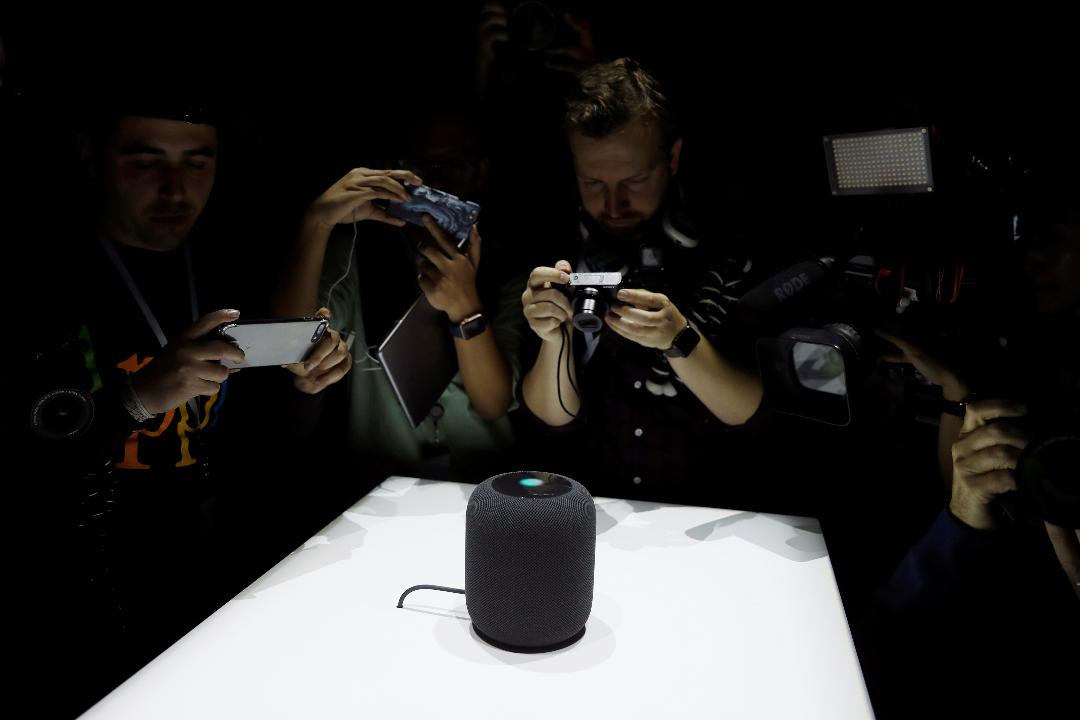Apple's New Big Bet: Augmented Reality
Apple Inc. set its sights on a new target: becoming the world's largest platform for augmented reality.
The ambitious announcement, which was overshadowed by the introduction Monday of the HomePod speaker, plunges Apple into a race against Alphabet Inc., Facebook Inc., Snap Inc. and others to conquer an emerging technology that uses cameras and computers to overlay digital images on a person's view of the real world.
It also bolsters the belief among many industry observers that Apple will build new augmented-reality features into its coming 10th-anniversary edition iPhone, and eventually develop glasses that relay information about the world so people can view maps or restaurant menus without pulling out a device.
Augmented reality shot to prominence nearly a year ago following the release of "Pokémon Go," a game in which players scoured the map of the real world, with the help of location-tracking technology, to find digital monsters superimposed through the smartphone screen. The technology is different from virtual reality, which uses computer headsets to create fully immersive digital worlds.
Roughly 40 million people in the U.S. are expected to use augmented reality this year, up 30% from last year, according to research firm eMarketer. It estimates the total will rise to 54 million in 2019.
Craig Federighi, Apple's head of software, demonstrated the potential of Apple's new technology platform, ARKit, at the company's annual Worldwide Developers Conference keynote Monday.
While viewing a table on stage through an iPhone screen, Mr. Federighi added virtual images of a steaming cup of coffee and lamp. The images appeared to rest directly on the table, recognizing the real-world surface rather than floating above it.
Apple Chief Executive Tim Cook has been a big proponent of augmented reality, saying he believes it will have broader success than virtual reality because it is less isolating.
Several companies are already working on augmented reality, including headsets in development from Microsoft Corp. and Magic Leap Inc. Alphabet's Google Tango platform has been available on some smartphones for a about a year.
Apple's ARKit, though, has the potential to democratize the technology by bringing it to roughly a billion devices without requiring separate hardware or software, as some competitors do. The company says the system uses camera data to find horizontal planes in a room and estimate the amount of light available.
"It's a seminal event in the journey toward AR that Apple's come out and shipped something," said Matt Miesnieks, co-founder of 6D.ai, a computer-vision startup. He expects developers to use the software because of its relative simplicity and potential to reach across Apple's large user base.
IKEA International A/S and Lego A/S are already working on augmented-reality apps using ARKit that could allow people to visualize furniture in their home or a virtual image of Lego Batman, Mr. Federighi said.
Representatives of Wingnut AR, an augmented-reality studio from "Lord Of The Rings" director Peter Jackson, showed an ARKit-based experience, seen through an iPad, in which airships battled in a virtual town square that was digitally dropped on a real table on stage, with the audience visible in the background.
Apple's announcement came two months after Facebook opened its augmented-reality tools to developers. CEO Mark Zuckerberg said he expects the nascent technology to open the world to a new world of apps and services.
Facebook's smaller rival, Snap, popularized simple augmented-reality tools that overlay bunny ears or dog noses on users' faces. It also allows users to add special effects to photos and backgrounds.
ARKit indicates Apple solved a difficult technical problem -- finding a way to use cameras and sensors in an iPhone to track the outside world, said Mr. Miesnieks. He said the same sensors and algorithms would run a pair of glasses, bolstering his belief that Apple plans to launch eyewear in the future.
Apple declined to comment on whether it could develop glasses.
"They're clearly getting developers ramped up for this," said Paul Reynolds, founder of Torch 3D, a startup focused on 3D-app development. "I'm sure for the iPhone launch they'll have nice content around it."
Write to Tripp Mickle at Tripp.Mickle@wsj.com
(END) Dow Jones Newswires
June 06, 2017 16:23 ET (20:23 GMT)




















